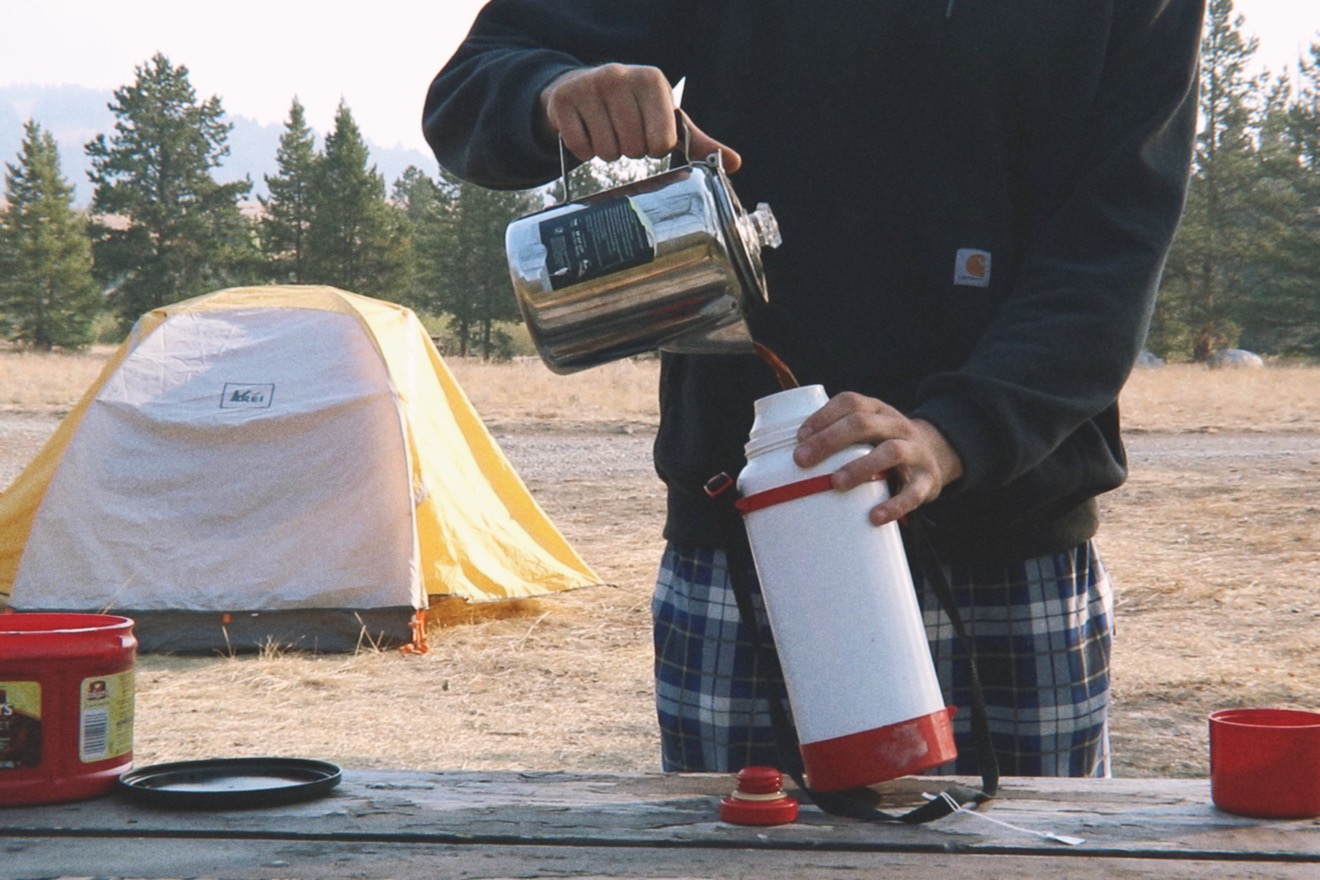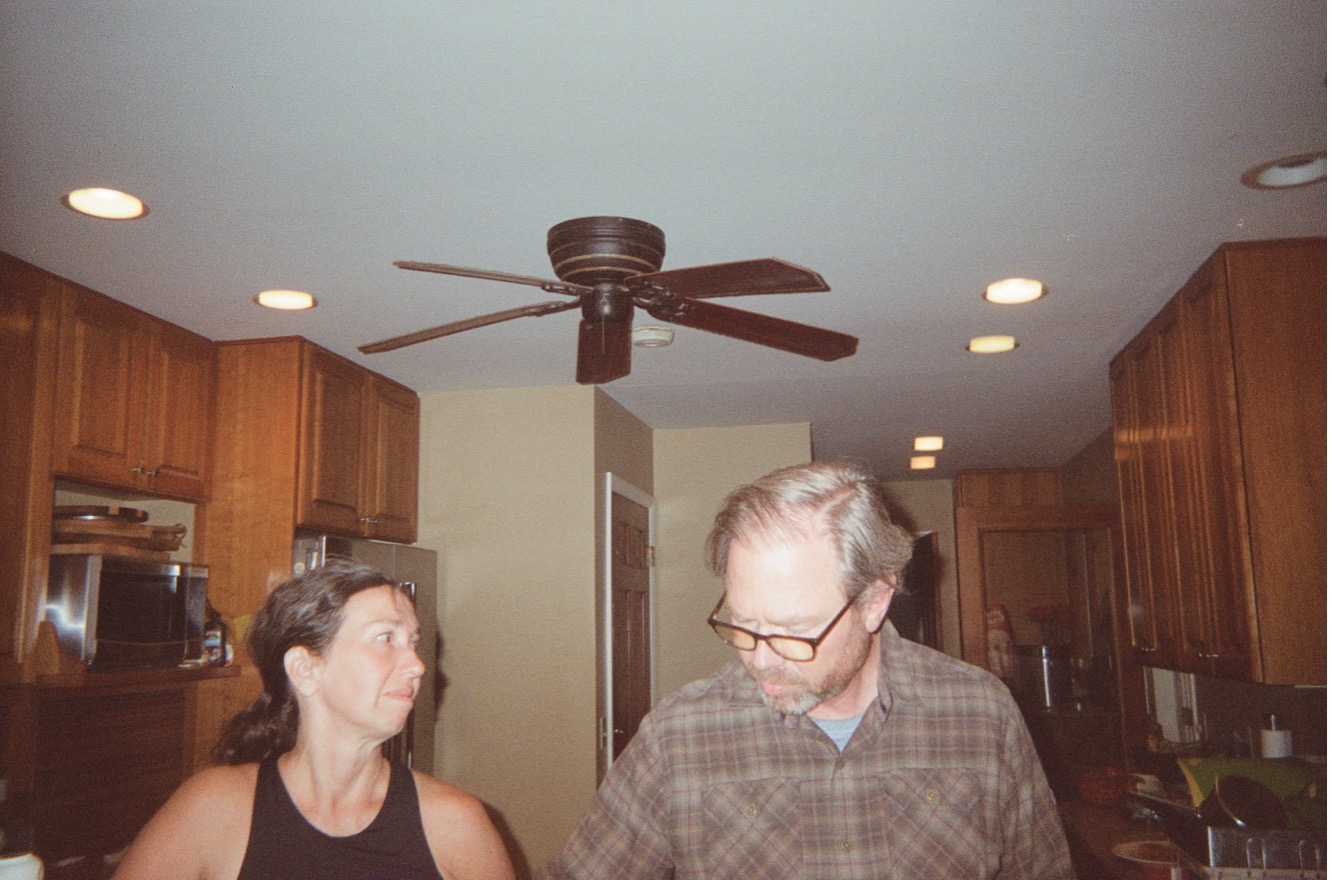My Father always set the Cuisinart to 4:30 a.m. The Cuisinart always ran just a few minutes fast. When the time had come, the machine would start up by dispensing the coffee beans into the grinder. A few seconds would pass, and then, for a moment, the house would be silent. Then the crunch and grind of beans would fill the house, fading into the whir of the blade as the grounds spilled into the filter. My Father’s house was all hardwood cabinets and hardwood floors—the sound echoed wall to wall. As the hot water percolated through the beans, the aroma of roasted nuts, herbs, and cacao would fill the first floor.
My Father drank his coffee black, out of tall and slender white Italian mugs. He always bought the Komodo Dragon blend from Starbucks. When he woke up, he would sit on the couch and read the news while drinking his coffee, waiting for the sun to rise.
My Father drank dark roast coffee, and he always rose before me.
When I first left home, I bought Folgers coffee and brewed it in a stovetop percolator, on a camp stove outside of my van. I missed the taste of the Komodo Dragon blend, and drinking it out of tall and slender, white Italian mugs. When I first left home, I never prayed once. I rose with the sun. I ate three eggs fried over-easy in olive oil, and sipped my coffee, wondering where in God’s name I was going. I looked out over the desert and sweat beads formed on my brow.
When I left Zion, my Father surprised me with a Hotel Room in St George. He prepaid for a suite at the Hilton Gardens. I showered and went to the Golden Corral and ate a week’s worth of food in a sitting. I went back to the hotel room and fell asleep for 10 hours, and when I rose I walked down to the lobby, which was filled with the aroma of dark-roast coffee, and the low volume of a news reporter on the television. I drank dark roast coffee out of a nice paper cup, wondering where in God’s name I was going. I returned to the van, to the desert.
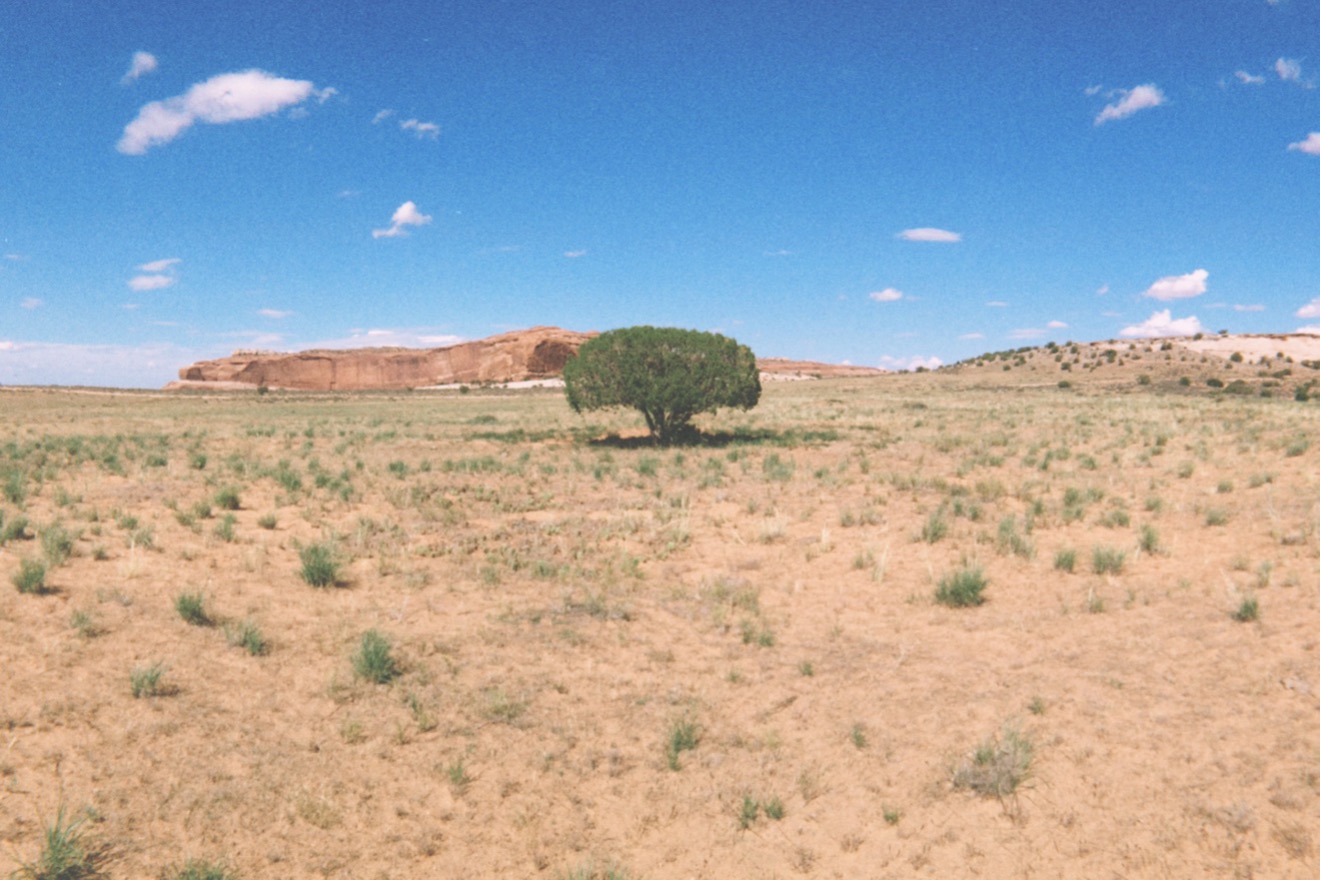
I drove around the country. I rose each morning at the crack of dawn and drank Folgers coffee on beaches, or day-old gas station coffee out of travel mugs in dense pacific forests. I never prayed once. The sound of the waves was numb, and the thick meshes of deciduous trees taught me of a dreadful silence like I had never known. I spent a week deep in the woods just North of the Colombia river, wondering each night why in God’s name I hadn’t left yet. I began to battle with my sleeplessness, each night petrified to turn into bed. Each night I knew I was up against hours of tossing and turning—hours of staring at the roof of the van.
I tried to read Lao Tzu’s Tao Te Ching, seeking salvation. Instead I got frustrated when I meditated, and paced through the woods to calm my nerves.
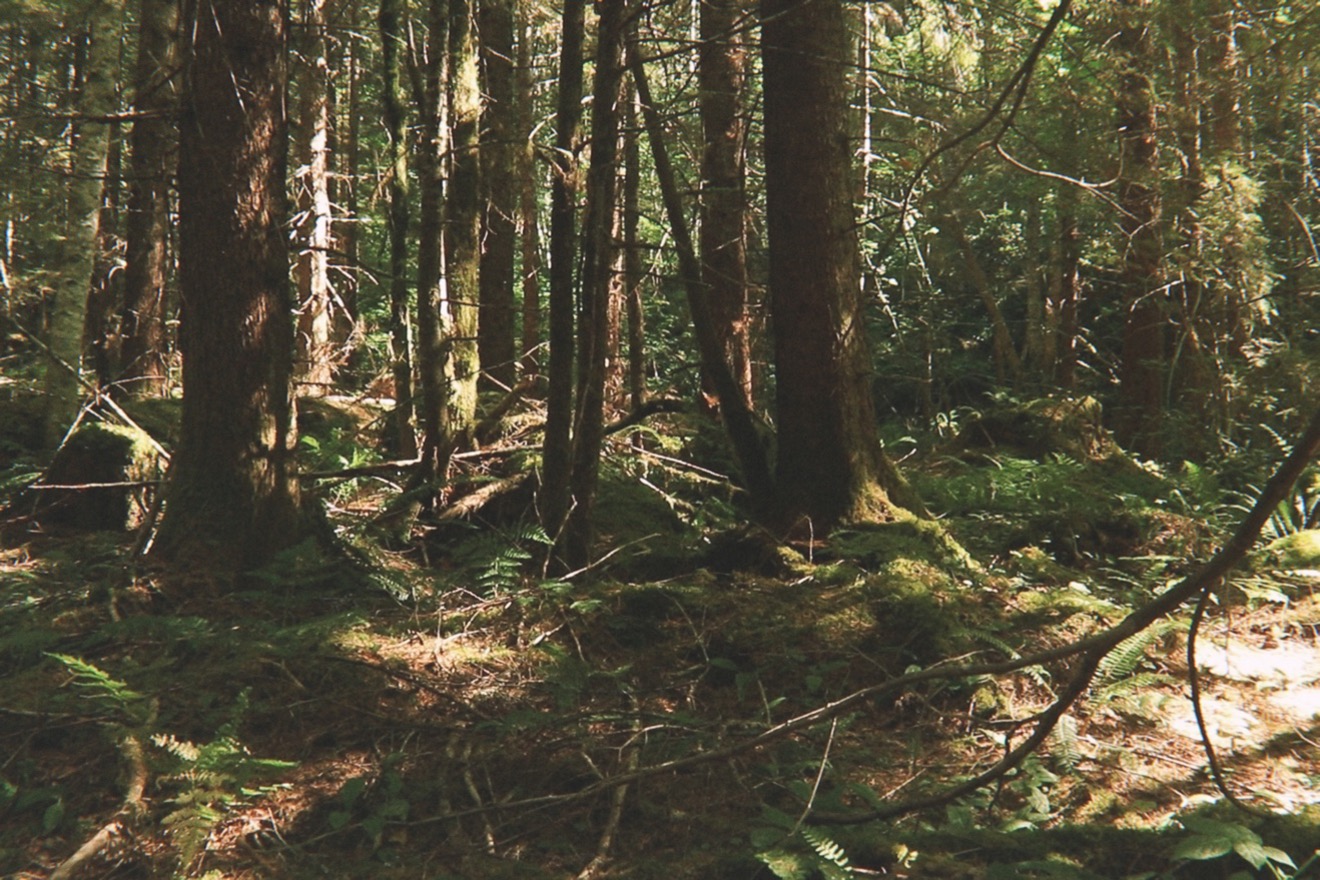
I camped for seven days in Northern Montana. Forests were burning everywhere, and at times the smoke was so dense you couldn’t see 100 yards ahead of you. I went to Glacier National Park but I didn’t see any of the grand views because the smoke was so dense. Half of the forests were burned to pieces. I met a man at Glacier—a fellow rambler named Evan. We camped together for several days. One morning he made me a cup of coffee using an aeropress. The beans were from Seattle, Washington. The coffee was strong and dark, and it reminded me of home.
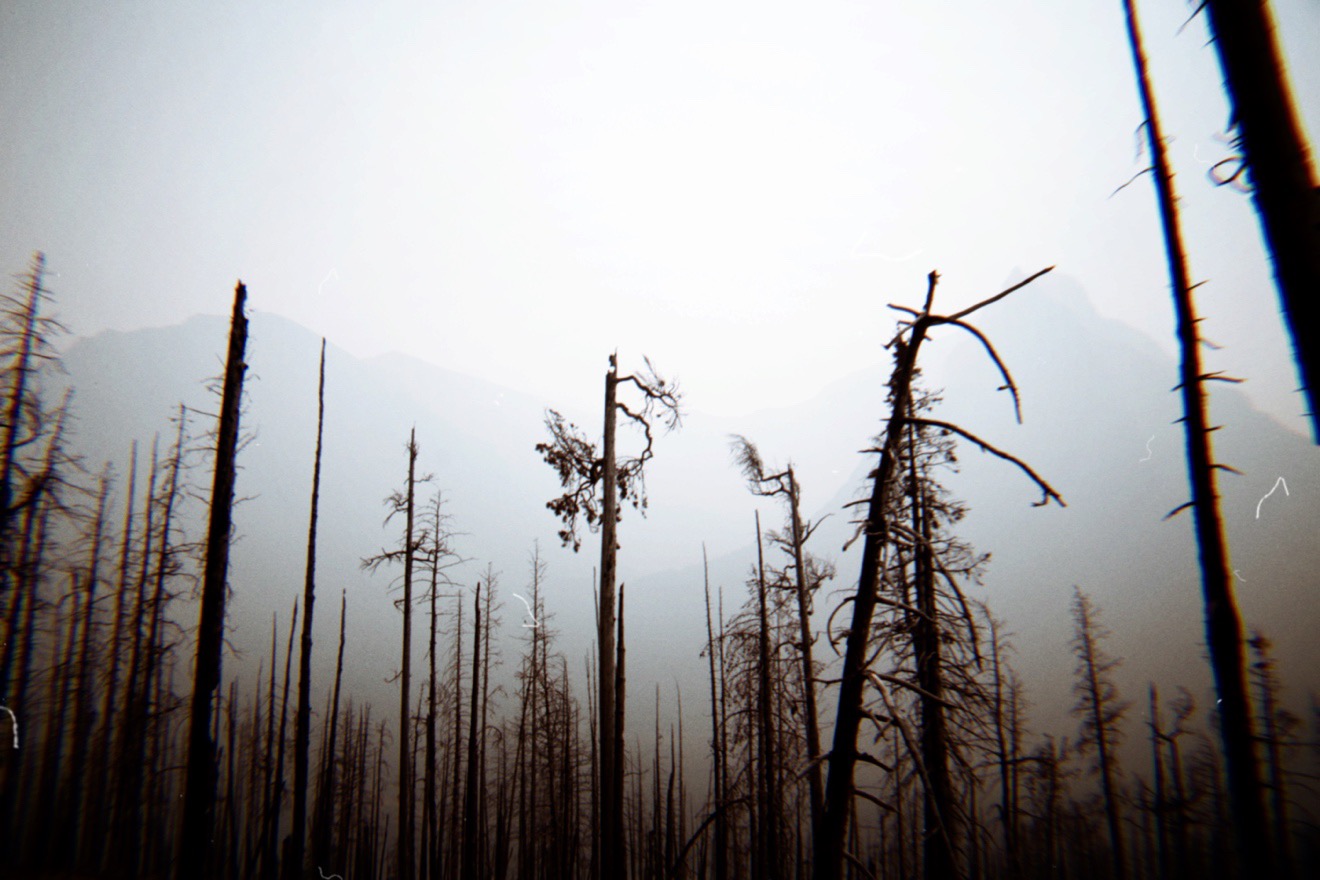
On the last night we camped together, we parked our vans near a service station down by the train tracks in East Glacier Village. We were just at the precipice of a steep hill that rolled down into a creek about 50 ft below. We walked into town to do some shopping.
I wandered into a small diner, and ordered a cup of coffee with a piece of Huckleberry Pie on the side. I thought about Jack Kerouac eating apple pie and ice cream in Iowa at the forefront of his On The Road Journey. I wondered if Kerouac ever thought about his Father while eating apple pie and ice cream, thousands of miles from home.
That night Evan and I slept by the tracks, but the trains came through every hour and a half throughout the night. The sound of the whistles and the racket of steel kept me from sleeping time and time again. The next morning we drank coffee by the tracks, then parted ways. I headed South on the 89.
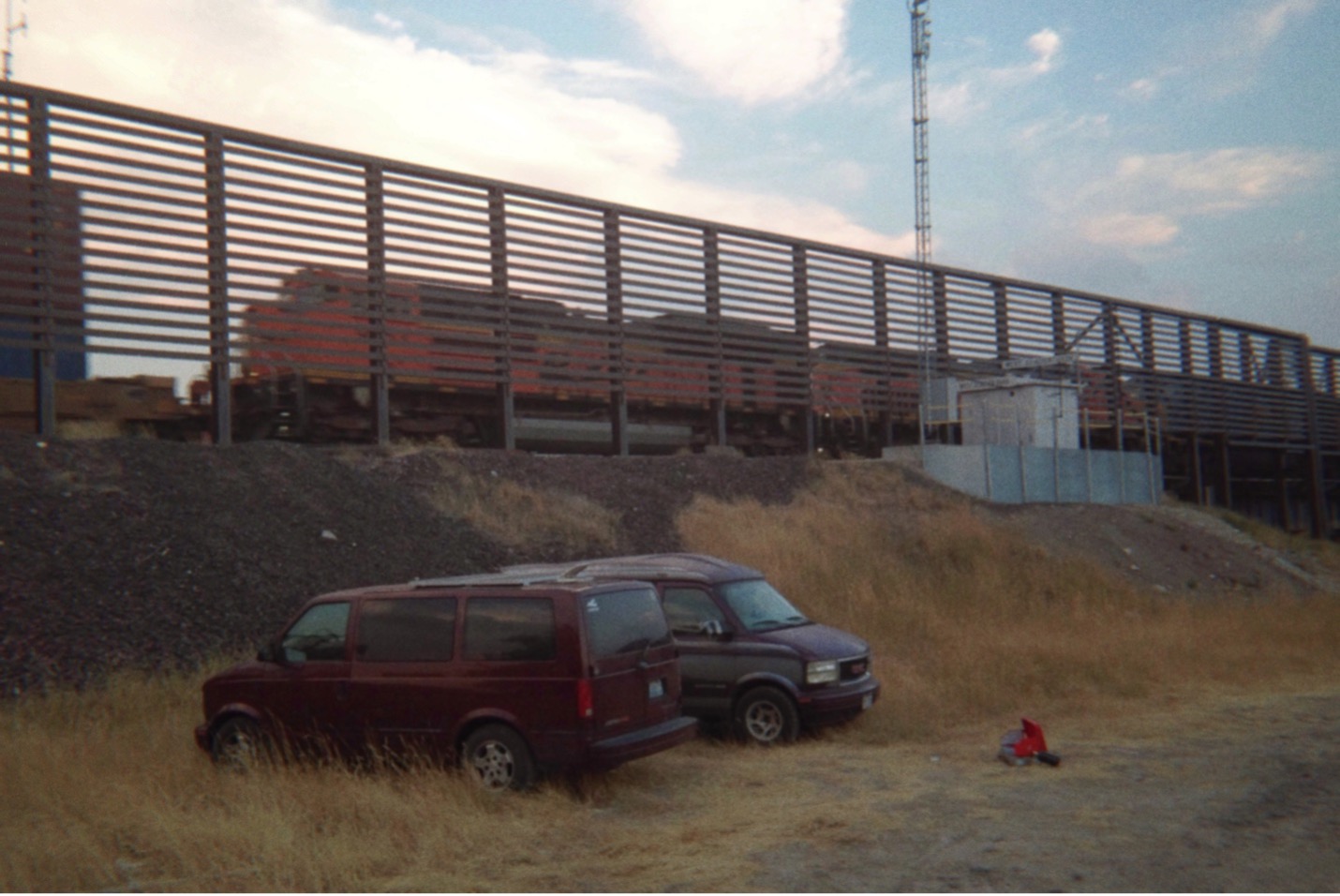
When I arrived in Bozeman, it was raining. I drank sweet Canadian whiskey by the river, and tried to cast my line in the high current. I thought of Jim Harrison’s Drinking Song—it made sense to me. I went to lay down in the van, and it was still raining, a tip-tap tip-tap on the roof. That night I checked into the Hampton Inn, and charged it to my Father’s Amex. I hadn’t slept much for a week. I ate at a Chinese Buffet. The food was good enough. I was amazed, however, at the beauty of a woman who wore a tattoo of some molecule on her chest. I wondered what the molecule was: THC, LSD, DMT, 5-HTP?
That night I struggled to sleep again, tossing and turning and tugging at the sheets in the Hampton Inn. The next morning I rose and went to the lobby for coffee and breakfast. The room was comforting, with the décor of a lodge. There was a stone fireplace on the wall, and pinewood log chairs. Late September. I watched the news as I wrote in my journal: wildfires, hurricanes, shootings. I wondered if we really were living in the era of revelation.
That evening I went to visit my friend Ross. When I arrived, he was roasting green coffee beans in a toaster-oven sized roaster in his living room. He lived in a small two-bedroom house with his roommate—it couldn’t have been more than 500 sq. ft. The house was filled with the amber smell of roasting beans.
My Father had sent a care package to Ross’s house for me. I don’t remember all of what it contained, but I do remember that it had two pounds of freshly ground Komodo Dragon blend. What a blessing.
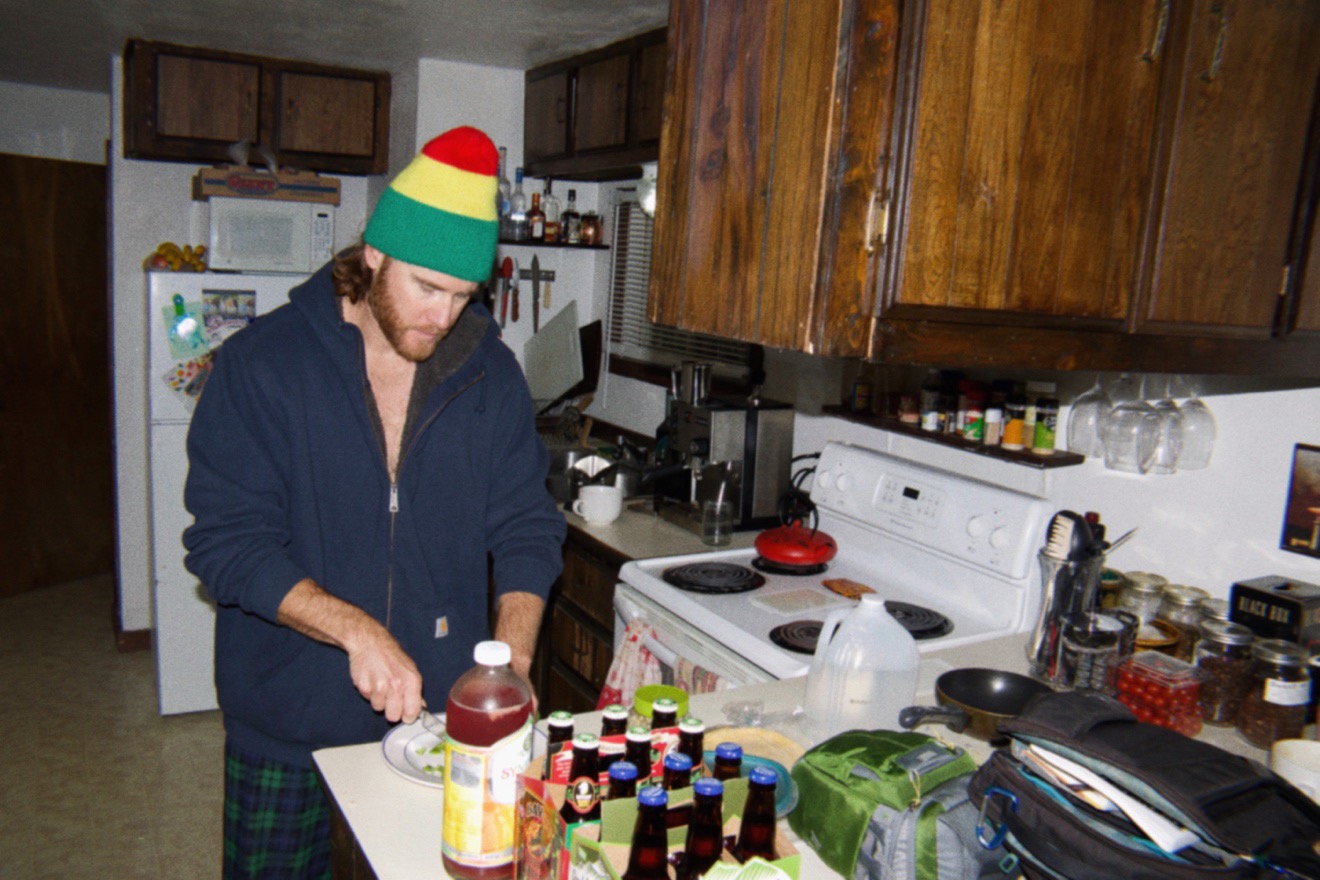
Ross bought me beer at the grocery store. We took some Kratom that night and we watched a film on Owsley Stanley, the audio-engineer and LSD chemist who worked with the Grateful Dead. That night I battled with that sense of impending doom that had been stalking me for weeks. My heart seemed to jump out of my chest. My hands were sweating—tense and shaky. I wanted to cling to anything I could, but there was not one single thing to grab onto. I could not bare the sense that someday all of this would end—this life, this love, this buzz, this breath. Even in the company of Ross and these people I had come to love, I felt completely alone. I felt alienated in my own skin. I wondered if I’d ever make it home. I wondered if I’d ever get to see my Father again.
That night it snowed. It was the first snow of the season.
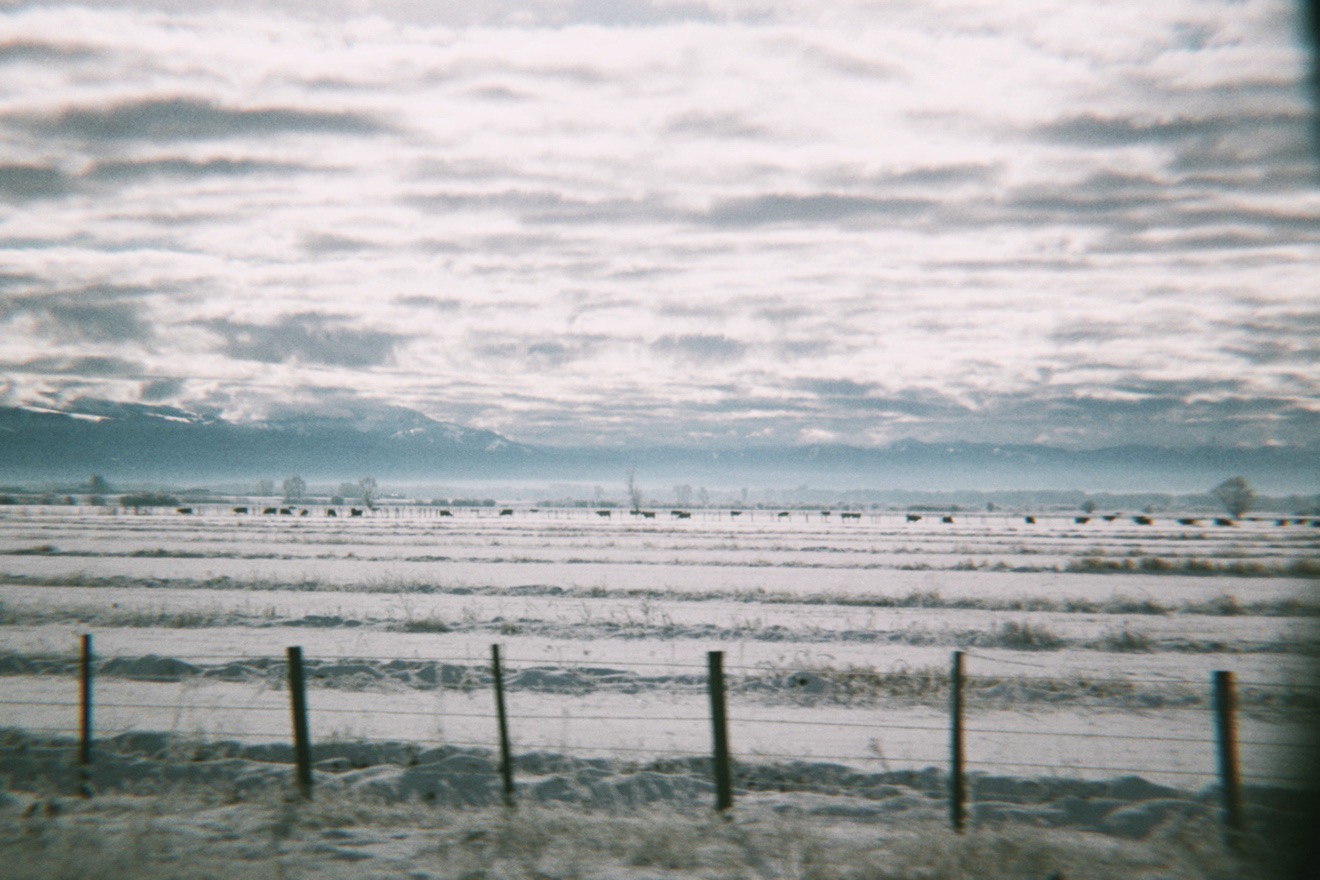
In the morning, I rose in a sleeping bag on the couch, and Ross made us cappuccinos. He ground the beans he had roasted the day before, and put four shots in each giant cup. The smell of the coffee in the house reminded me of home—it reminded me of waking up to the smell of coffee & my Father sitting on the couch. Ross topped the espresso with foamy, steamed milk. The snow began to melt, so we set out buckets to catch the water leaking from the ceiling.
In the evening, we went to a brewery. I felt a lightness in drinking those heavy craft beers. That night we got drunk and ate smoked meats and watched a football game. I sat in the recliner, sipping a glass of Maker’s Mark and thinking of my friends and family back home. I visualized what it would be like when I returned home: driving my Father’s M3, sleeping in a real bed, buying enduros with my best friend David and driving them up to Rampart Range, or maybe coming home to find the love of my life and gazing up at the stars with her on the night of the new moon. I thought of drinking beers by the campfire with my best friends David and Connor and my brother Jack, or roasting coffee on the percolator over the flames. I thought of waking up in the morning and drinking black coffee with my Father. As I sipped from the whiskey that warmed my gut and hazed my mind, relaxed in that giant recliner, I felt a sense of ease and comfort unlike any I had ever known.
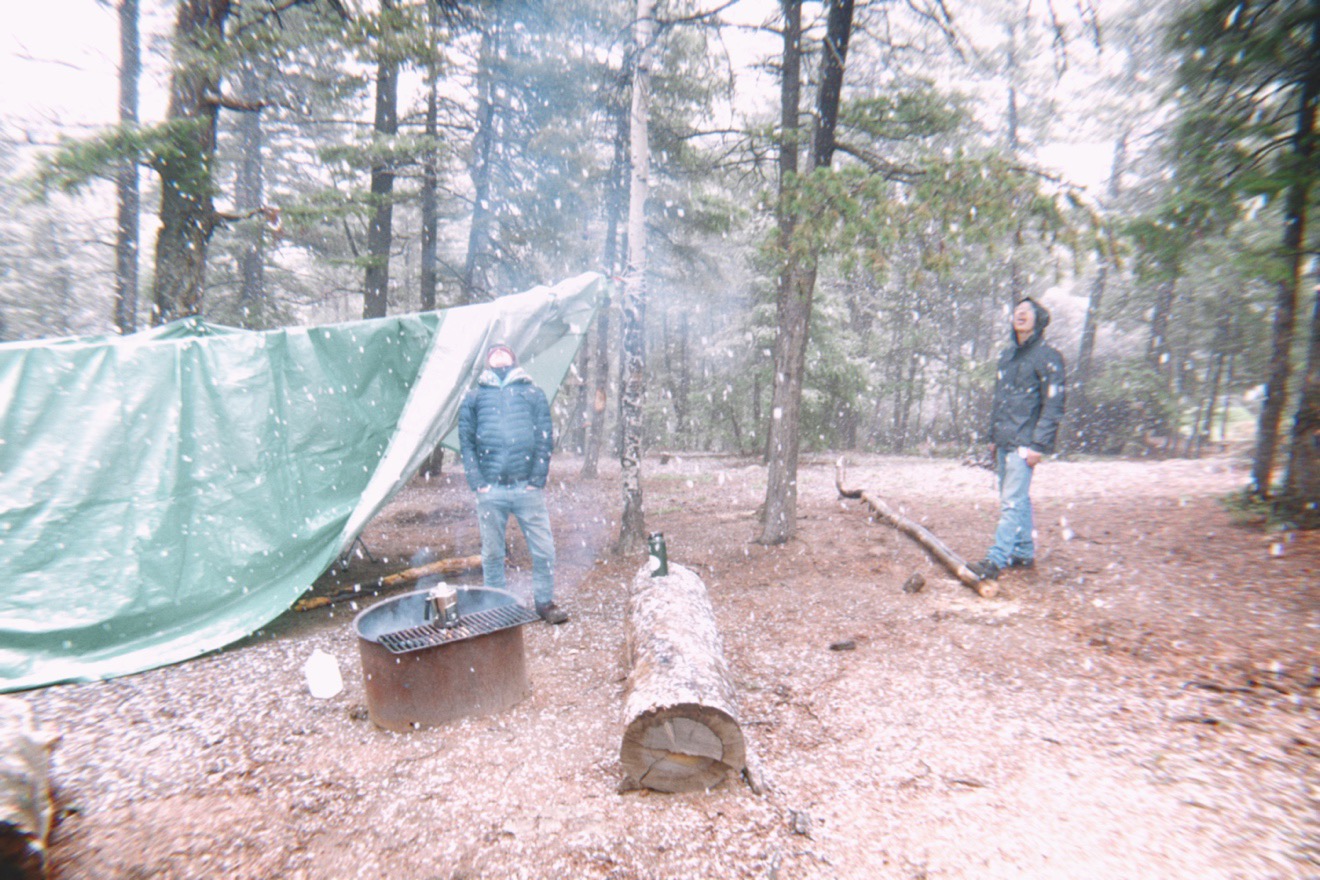
The next morning, Ross, his roommate, and I drank cappuccinos in the little living room. Ross asked me where I was going next. I told him I was going to head East, but I didn’t know exactly where I’d end up. I asked him for another cappuccino for the road. He made me another cappuccino, then I left, wondering where in God’s name I was going.
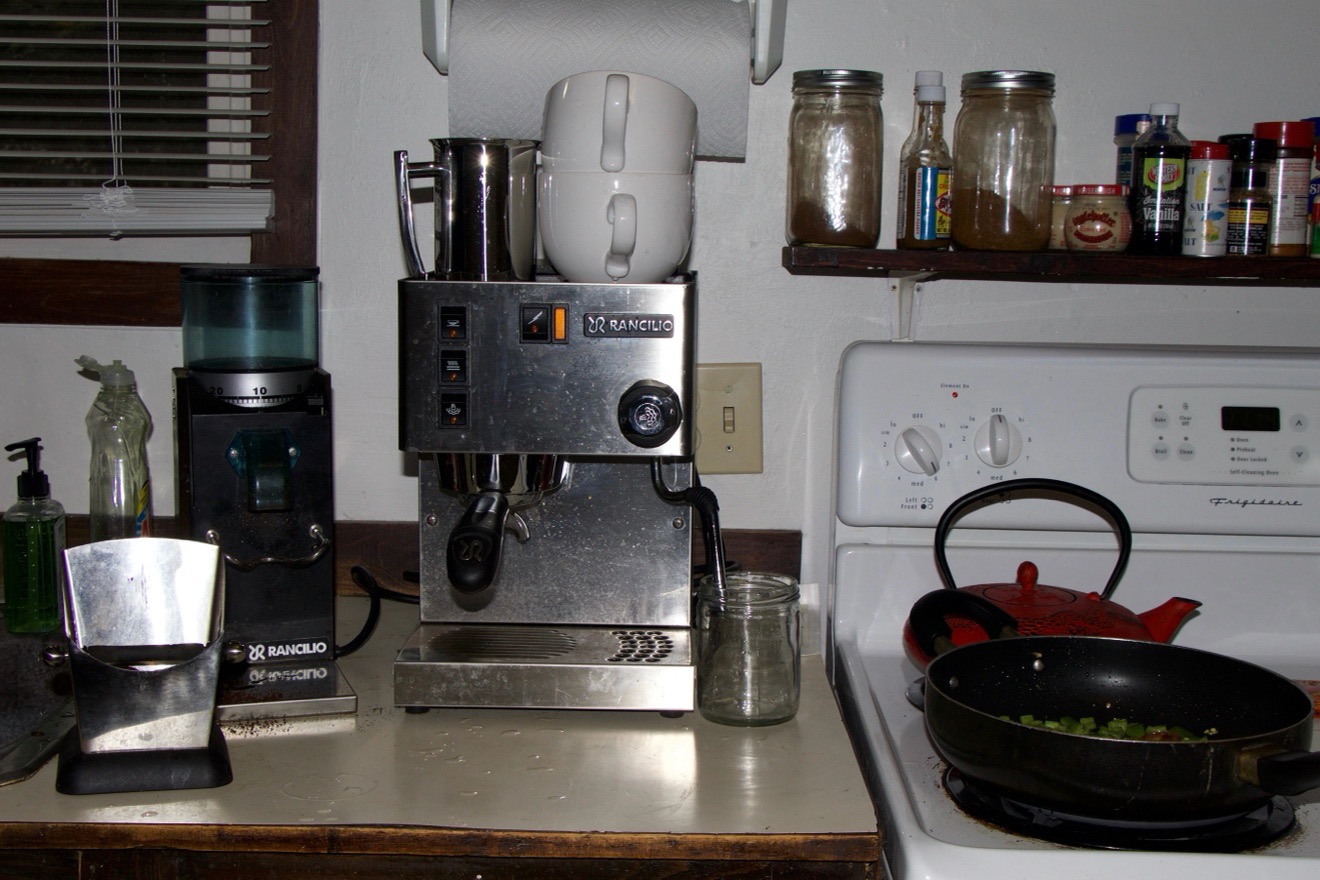
Then, as I drove eastbound down I-90, I watched the signs for the I-25 south exit.
5 miles. I wondered what it might be like to take that road home. What if I went home now? Haven’t I got the experience I’ve been searching for? Haven’t I learned the lessons I need to learn? I looked out at the front range of the Rocky Mountains, stretching southward as far as the eye could see. 3 miles. Maybe I could just stop home for a few weeks, then head home again. It wouldn’t take me that far out of my way. 1 mile. There’s no way you’d leave again if you went home. ¼ mile. It’s just not time.
I drove past that exit, wondering where in God’s name I was going, wondering why in God’s name I wasn’t going home. That evening, as I gazed out on the dry rolling hills, I looked upon a lone doe walking by the stream that curled around the highway.
Suddenly a memory flashed over me from the week before. On the last full day Evan and I were camping together outside Glacier National Park, we were driving down to that small town by the tracks, planning to make a few stops along the way. At one point I was driving southbound, drifting and floating through the daydreams in my head, and suddenly, as I passed just over a small hill, I was forced to slam on the breaks. Before me, a herd of bighorn sheep were crossing the road. I looked to my right to find an entire forest of burned-up trees, standing tall and barren against the hazy horizon. Interspersed between them were thousands of vibrant green evergreens, no taller than hip-height. The juxtaposition—the cycle of birth and death.
Then I remembered that someone once told me that some species of pine trees need wildfires to hatch their pinecones so the next generation can grow. If it wasn’t for the fire, there wouldn’t be trees.
I looked ahead to the rolling Montana hills, headed Eastbound down I-90. The sun was setting, and the clouds were smoldering orange and purple. The horizon and the sky seemed to stretch on for eternity. This is why they call Montana God’s country, I suppose.
I drove on, wondering where in God’s name I was going to sleep, where in God’s name I would end up. My heart ached for home.
Someday, some way, I thought, my father and I would be joined again, at home, drinking black coffee out of tall and slender white Italian mugs.
